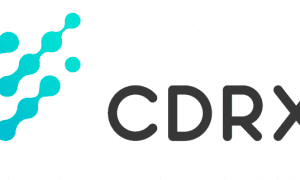When most people hear “CMO,” they picture a Chief Marketing Officer overseeing brand strategy, managing large teams, and presenting long-term marketing roadmaps to the executive team. It’s a role traditionally rooted in big-picture thinking, quarterly planning, and polished slide decks.
That’s great for large enterprises. But early-stage startups don’t need a strategist in a corner office—they need someone who can build a growth system from the ground up.
They need someone who can:
- Design and execute full-funnel growth plans
- Manage budgets across paid and organic channels
- Monitor metrics like CAC, LTV, and churn
- Launch scrappy experiments with a high bias toward action
Ideally, this person has operated in venture-backed environments and been through at least one acquisition or exit. They understand not just how to grow—but how to scale under pressure.
That’s where the fractional CMO or fractional marketing manager comes in.
🤔 What Is a Fractional CMO?
A fractional CMO is a part-time or contract-based marketing leader who works with startups to guide strategy and lead execution—without the cost of a full-time executive.
They typically work 20 to 30 hours a week, and their impact is felt across brand, performance, lifecycle, and analytics.
Since the COVID-19 pandemic, this model has grown rapidly in popularity. Founders now prioritize flexibility, speed, and cross-functional talent—making the fractional CMO an ideal fit.
🔍 Why They Don’t Look Like Traditional CMOs
The typical fractional marketing manager today doesn’t come from a Fortune 500 background. More than 80% come from startups and growth-stage environments.
You’ll see titles like:
- Growth Manager
- Performance Marketer
- Head of Marketing
These aren’t “brand-first” hires. They’re product-aware, data-fluent operators who build systems that move metrics. As PostHog puts it, they think like engineers:
“The best growth leaders treat growth like a product—testing, iterating, measuring, and optimizing continuously.”
Here’s what that actually looks like across three key areas:
🧲 1. User Acquisition: Strategy Meets Speed
A fractional CMO builds and runs the full acquisition engine. That includes:
- Budgeting across Meta, Google Ads, Reddit, YouTube, TikTok
- Designing the channel mix based on funnel stage, CAC, and LTV
- Aligning acquisition with clear marketing OKRs (e.g., MoM growth, $CAC targets)
- Running structured experiments: ad creatives, landing pages, and new messaging
The goal isn’t just more traffic—it’s identifying scalable, repeatable growth channels.
🔁 2. User Retention: Revenue Starts After Sign-Up
Retention is where real growth compounds. A strong fractional marketing manager goes deep into:
- Pricing tests to find the optimal model for different customer segments
- Churn reduction via onboarding improvements and lifecycle campaigns
- Monitoring LTV, activation rate, and retention cohorts to refine funnel steps
- Collaborating with product to build features that boost engagement and upgrade rates
🧠 3. Analytics & Automation: The Technical Backbone
This is where most traditional marketers fall short—and where modern fractional CMOs stand out.
They build the infrastructure needed to track performance and automate at scale:
- Implementing full-funnel stacks: GA4, Mixpanel, Segment, PostHog, Amplitude
- Designing clean event schemas and tracking plans
- Setting up real dashboards—not vanity charts
- Automating lifecycle flows through Customer.io, HubSpot, Klaviyo, or Braze
- Running A/B tests and attribution models to validate growth bets quickly
You can’t optimize what you can’t track. A fractional CMO makes sure you’re tracking everything that matters.
👀 What Makes a Fractional CMO Different from a Freelancer?
This is where a lot of startups get stuck.
Freelancers are great for execution:
✅ Need a Facebook ad?
✅ A landing page?
✅ A blog post?
They’ll get it done. But they won’t design your growth system. They won’t connect paid media to lifecycle or run channel-level CAC analysis.
Fractional CMOs own the whole system. They:
- Set the roadmap and KPIs
- Build the creative and execution plan
- Oversee channel mix and budget
- Lead testing, analysis, and optimization
Relying on freelancers without a growth architect is like building a house with no blueprint. You’ll have materials—but no structure.
🚀 Why Founders Are Embracing the Growth Team-for-Hire Model
Hiring a full-time team takes months. And even then, you might not need five full-time people—yet.
But you still need:
- A strategist
- A media buyer
- A designer
- A content writer
- A lifecycle marketer
That’s why the growth team-for-hire model is gaining traction. You get:
- A fractional CMO to lead strategy
- A lightweight team to execute across channels
- Fast testing, faster iteration, and real traction
It’s high-impact growth—without the overhead.
🔎 Where to Hire a Fractional CMO
There are several ways to find great fractional CMOs or fractional marketing managers:
| Platform | Summary |
| Toptal | Premium, highly vetted talent. Ideal for later-stage startups. |
| Upwork | Flexible and wide-ranging, but quality varies. |
| Get-to-Rev.com | Perfect for early-stage startups. Offers a fractional CMO with a built-in growth team for hire, covering creative, content, and strategy—ideal when you don’t want to hire five freelancers just to get moving. |
| Bolster | C-level executive matching. Suited for VC-backed companies. |
If you need execution and strategy together, skip the piecemeal route and look for integrated setups.
✏️ Final Thoughts
Startups don’t just need marketers—they need builders. People who can design systems, launch fast, and learn even faster.
A fractional CMO—especially one with startup experience—is often the smartest move you can make between Seed and Series A.
It’s fast, lean, and focused on one thing: growth that compounds.



































